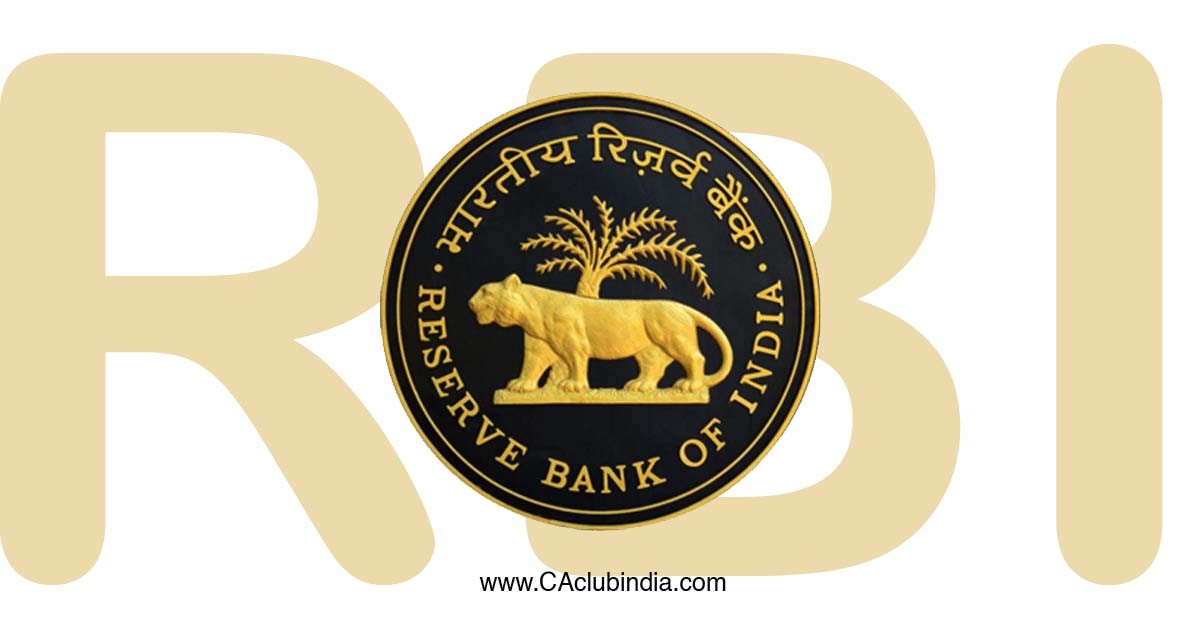The economies of half-a-dozen states are set to be "most severely affected" because of the termination of the goods and services tax compensation programme in June last year, a Reserve Bank of India report on state finances said.
The share of GST compensation had exceeded 10% of the tax revenue for these states on average, according to the report.
The report said at least 10 states, including Karnataka, Tamil Nadu, Maharashtra, Gujarat and Uttarakhand, are expected to fall short of the expected 14% GST growth, as per their budget estimates.
"During the five-year transition period, the top five compensation-receiving states were Maharashtra, Karnataka, Gujarat, Tamil Nadu and Punjab. However, the states which are likely to be most adversely affected by the end of the compensation regime are Puducherry, Punjab, Delhi, Himachal Pradesh, Goa and Uttarakhand, for which the share of GST compensation in tax revenue has exceeded 10% of an average," said the RBI report released on Monday.

It said the northeastern states had been the biggest beneficiaries of the GST regime, recording a compound annual GST revenue growth rate of 27.5% since the implementation of the tax 2017-18 to 2022-23 period as against 14.8% for all states.
The report suggested that these states augment revenue by increasing compliance, plugging leakages and widening their tax base. States were given full compensation for the first five years of GST, calculated as the difference between projected revenue growth based on 14% annual growth with 2015-16 as the base year and the actual revenue.
The compensation period ended on 30 June. "The problem really is in other tax revenues not increasing proportionately, leading to this problem. As the economy slows further, revenue growth will be affected further, and this has to be buffered in a while, drawing next year's Budget. This also means that states won't reduce value-added tax (VAT) on fuel," said Madan Sabnavis, chief economist at Bank of Baroda.
GST compensation cess collection is budgeted at Rs. 1.2 trillion, as against Rs. 1.04 trillion collected in 2021-22. As of November, Rs. 82,497 crore has been collected as compensation cess.
The report added that despite persistent headwinds, states' fiscal outlook remains favourable on expectations of high growth in revenue receipts.
"Growth of GST and other taxes has been healthy in 2022-23 so far, which should help many states absorb the impact of the planned end to the GST compensation period," said Aditi Nayar, chief economist, ICRA Ltd.
Several states had pressed for an extension of GST compensation by another two-to-five years, arguing that they may have to face annual losses if not suitably compensated.
Jharkhand chief minister Hemant Soren again sought an extension last month, saying the state was facing a revenue shortfall of Rs. 5,000 crore per annum.
Similarly, Chhattisgarh has said it will have to bear a loss of close to Rs. 3,000 crore annually if the compensation is stopped. Delhi says its revenue losses may run into Rs. 8,000 crore.
"GST collection is directly linked to consumption, and its growth is mainly driven by state GDP growth, while in some states, it is boosted by remittances. As the growth profile in every state is different, this will be reflected in the GST collection and its growth. Tax compliance no doubt will have an impact on collections, which after time will not give much buoyancy. In the medium-to-long run, it totally depends on the growth profile. Having a stronger growth profile will lead to not only higher GST collection but also fiscal consolidation," said Devendra Kumar Pant, chief economist of India Ratings and Research.
The Council had, in the September 2021 meeting, decided to extend the compensation cess period till March 2026, but the collection will be used to repay the back-to-back loans taken between 2020-21 and 2021-22 and not to further compensate states.
In the wake of the pandemic, as GST collections nosedived, and the corpus available in the GST Compensation Cess Fund was insufficient to meet the compensation demand from States, the Union government resorted to market borrowings of Rs. 1.10 trillion and Rs. 1.59 trillion in 2020-21 and 2021-22, respectively, to provide back-to-back loans to states in lieu of the GST compensation shortfall.
According to the RBI report, the fiscal health of the States has improved from a sharp pandemic-induced deterioration in 2020-21 on the back of a broad-based economic recovery and resulting in high revenue collections. States' gross fiscal deficit (GFD) is budgeted to decline from 4.1% of gross domestic product (GDP) in 2020-21 to 3.4% in 2022-23.







 CAclubindia
CAclubindia
